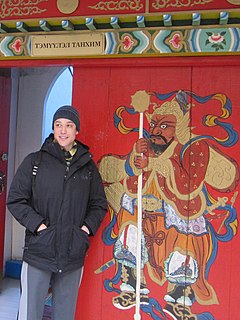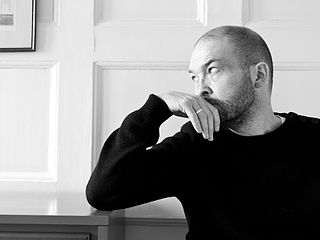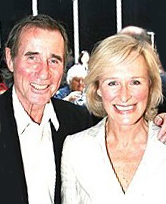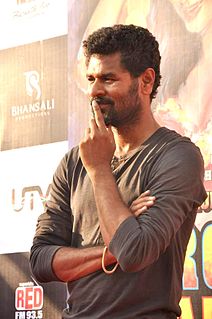A Quote by Jason H. Moore
Put in every joke that's not a dud and then let's just start pulling the ones that work the least. You're just constantly sifting until you're left with the biggest chunks of gold. The audience also tells you what some of those chunks are. You can have your own favorites, and then, once you screen it for an audience, the audience tells you what they're entertained by. I feel like that's a big part of it.
Related Quotes
I like to service the full audience of America, so I try to do things that are just real artistic, like when they don't have the most money, but it's a great piece of work. Then, there are big, fun comedies and big animated movies for kids. I want to do things for my nieces and nephews. Ultimately, we're trying to deliver something entertaining to an audience. As long as it can entertain the audience, and it makes me or my niece and nephew laugh or cry, then I think it's good.
I don't understand choreographers who say they don't care about the audience or that they would be happy to present their works non-publicly. I think dance is a form of communication and the goal is to dialogue with the audience. If an audience member tells me they cried or that the dance moved them to think about their own journey or a family member's, then the work is successful.
I have a lot of friends who were stand-ups, and they just stopped after a while, because they didn't like that battle, or they just couldn't do it. And then they would get on a sitcom and get visible and get back into it, because the audience was just way easier on them. But they lost those crucial years of learning to turn any audience into your audience.
I think, when all bands start, when you're on your first album you have the benefit of hoovering up people who genuinely come across the music and really like it, but also those sort of 'floating voters' who just like pop music when they're young. And I think that when you get to your fourth album, those floating voters have dissipated and you're left with a core audience, and at that point you've really got to get your act together and move on to something else to keep afloat, or you'll just shrink with your core audience.
My point is that the great challenge of an artist is to balance those two things: to be strong enough to have your own personal vision that you will put on the page or the canvas or the screen, no matter what people say, but it requires a radical sensitivity. You have to be completely open to what the world is telling you, to what your audience tells you. And balancing those two things is nearly impossible.





























